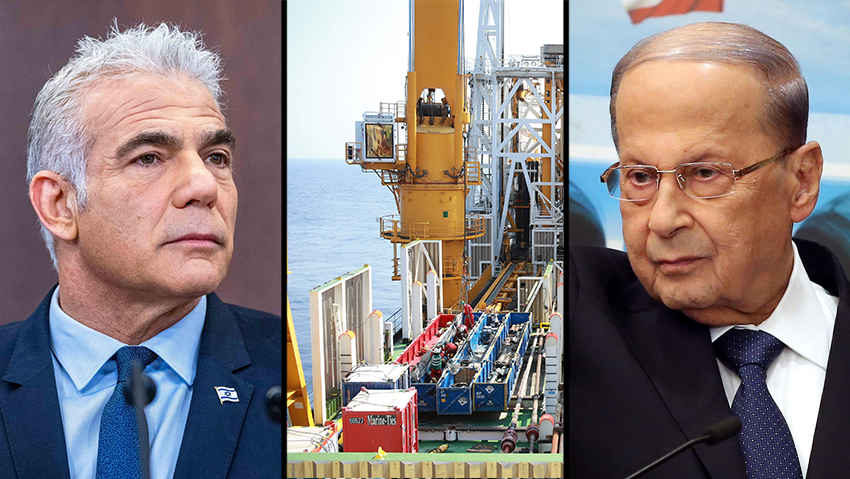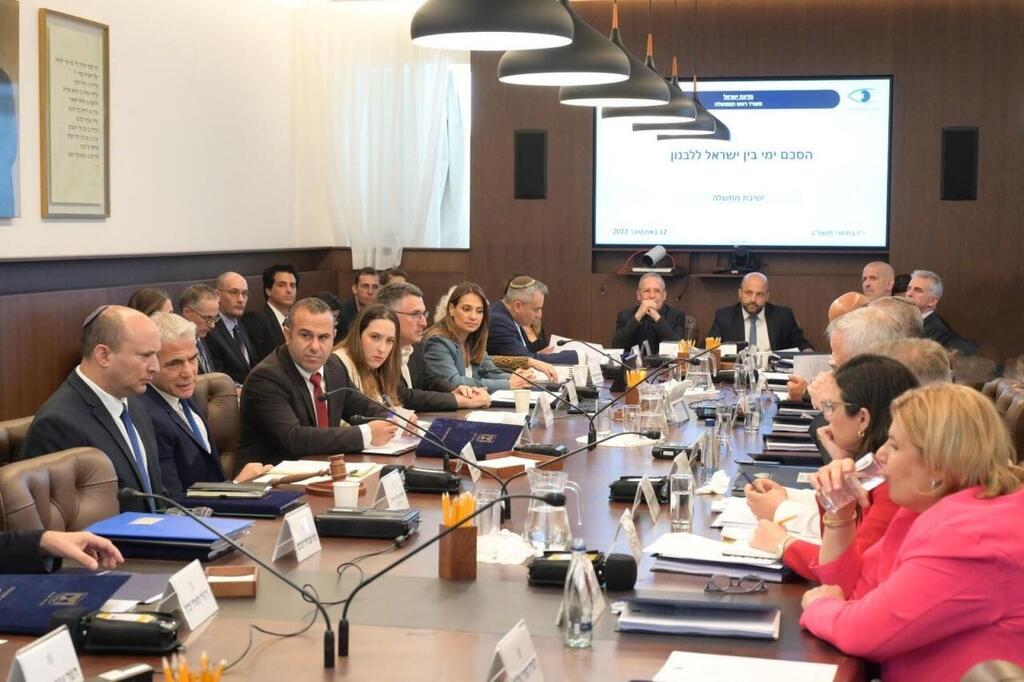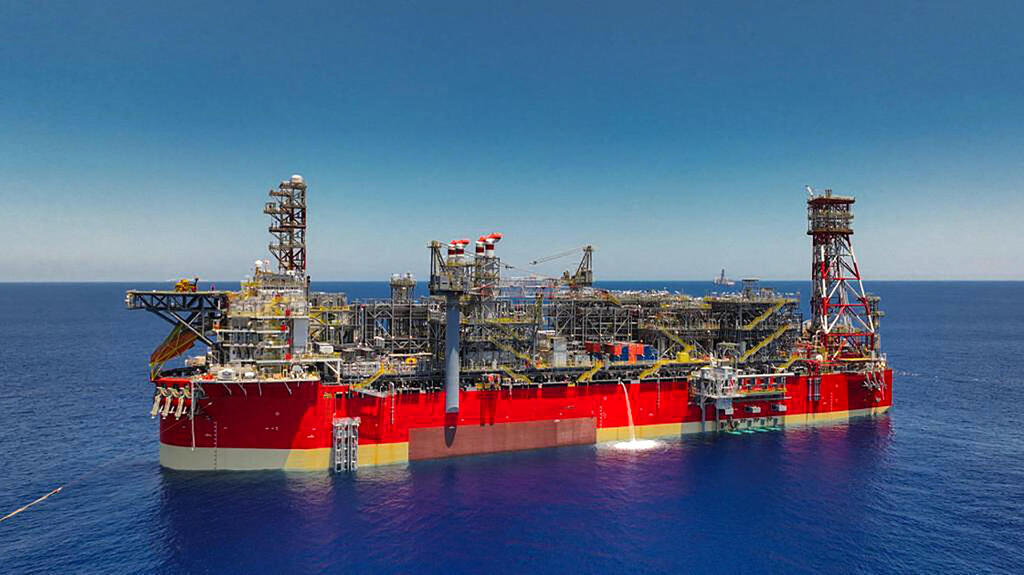Lebanon's President Michel Aoun announced on Thursday that his country has acceptance the U.S.-brokered maritime border deal with Israel, adding talks had come to "a positive end."
Aoun said the deal represented a "historic achievement" but insisted it did not pave the way to normalization of relations with Israel.
4 View gallery


Yair Lapid, Karish gas field, Michel Aoun
(Photo: Olivier Fitoussi, Uriel Cohen, AFP)
Lebanon and Israel both claim around 860 square kilometers (330 square miles) of the Mediterranean Sea that are home to offshore gas fields.
The agreement to demarcate the maritime border comes after months of talks mediated by senior U.S. official Amos Hochstein, and would mark a major breakthrough in relations between the two countries.
"This indirect agreement responds to Lebanese demands and maintains all our rights," Aoun said in a televised speech.
The president made the announcement hours after meeting with caretaker Prime Minister Najib Mikati and Speaker Nabih Berri, who had received copies of Hochstein's latest iteration of the agreement earlier this week.
U.S. President Joe Biden on Tuesday said that both countries agreed to "formally" end their maritime border dispute, and that their leaders both told him they were ready to take next steps.
Israel's Cabinet on Wednesday voted in favor of the U.S.-brokered deal by a large majority of its ministers. The agreement will be presented to the Knesset, for a two-week review period before a final Cabinet vote.
4 View gallery


Political and security cabinet convenes to discuss the maritime border agreement
(Photo: GPO)
Lebanon hopes that demarcating maritime borders will pave the way for gas exploration to help lift it out of its crippling economic crisis.
"I hope the end of these negotiations is the promising start to placing the cornerstone for the economic growth that Lebanon needs through extracting oil and gas," Aoun said. "Which would add stability, security, and development that our nation Lebanon needs."
Israel meanwhile also hopes to exploit gas reserves and hopes the deal will reduce the risk of war with Lebanon's Iran-backed militant group Hezbollah.
The agreement stipulates that the disputed waters would be divided along a line straddling the Qana natural gas field. Israel would be compensated for gas extracted from its side of the line.
Lebanon has been working with French energy giant TotalEnergies on preparations for exploring the field.
The Karish gas field, which Israel has always claimed to be within its sovereign territory, would be encompassed in Israel's borders as part of the deal, and gas production is expected to start 'as soon as possible,' according to a a senior official.
The agreement would also set in place an existing “buoy line” that serves as a de facto border between the two countries.



